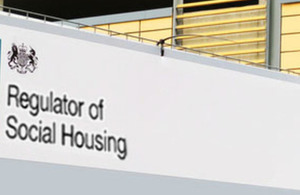Post Office card accounts: switch now, says HMRC
HM Revenue and Customs (HMRC) is warning Post Office card account holders, who receive HMRC-related payments, that time is running out – with just 2 weeks left to switch their accounts.
About 6,800 Post Office card account customers, who receive tax credits, Child Benefit or Guardian’s Allowance payments, need to transfer their account by 5 April 2022 to continue receiving their money without interruption.
HMRC is stopping making payments to Post Office card accounts from 6 April. Customers, who have not done so already, must notify HMRC of an alternative account to have their payments paid into. It will not be possible to pay tax credits or Child Benefit until a valid account is provided.
These could be vital funds for families and individuals, due to the rise in the cost of living, and HMRC wants to make sure no-one loses out.
Myrtle Lloyd, HMRC’s Director General for Customer Services, said:
Time is running out and we want to make sure that no customer misses out on the benefit payments they are entitled to. If you still need to switch your Post Office card account, contact HMRC to update your bank account details.
HMRC has been writing to affected customers since October 2019 to notify them that their Post Office card accounts will be closing and urging them to take action. More than 143,000 customers have already switched their accounts and provided HMRC with updated details.
Customers can choose to receive their benefit payments to a bank, building society or credit union account. If they already have an alternative account, they can contact HMRC now to update their details.
Child Benefit and Guardian’s Allowance customers can use their Personal Tax Account to provide revised account details, change their bank account details via GOV.UK or by contacting the Child Benefit helpline on 0300 200 3100. Tax credits customers can change their bank account details by contacting the tax credits helpline on 0345 300 3900. If customers cannot open a bank account, they should contact HMRC.
If a customer misses the 5 April deadline, their payments will be paused until the customer notifies HMRC of their new account details.
The Money Helper website, provided by the Money Advice and Pensions Service, offers information and advice about how to choose the right current account and how to open an account.
HMRC has been contacting customers recently to encourage them to take action and will continue to contact them to remind them.
The agreement enabling HMRC to make payments into Post Office card accounts was due to end on 30 November 2021. HMRC agreed a one-off extension with the Post Office to temporarily continue making payments into HMRC customers’ accounts until 5 April 2022.
